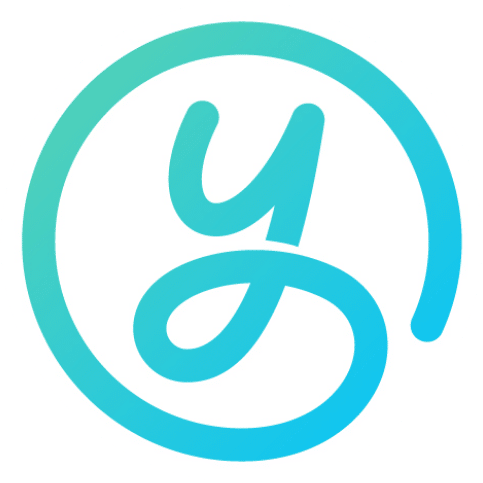If you’re looking for UBC Personal Profile questions, examples, and prep tips, then you’ve come to the right place.
In the meantime, if you’re serious about getting into UBC, we recommend you schedule a free consultation for our 1-on-1 Youth Coaching services.
Before you dive in, it’s important to understand that UBC admissions committees receive thousands of applications every year. To help you stand out from the crowd, you need to demonstrate a clear sense of self, strong life experience, and exemplary communication skills.
Our ‘full student’ coaching process will help you improve in all these areas (and more!).
It’s essential to show the admissions committee who you are, what you want to accomplish, and why you’d be a great fit for the University of British Columbia.
You can choose EITHER the Narrative OR the Deductive approach for your UBC Personal Profile essays. The Narrative Approach is usually for Arts/Business programs, or for personal questions where you want to tell a memorable story that creates an emotional connection with the reader. The Deductive Approach is typically used for STEM programs, where you have to provide an argument in a logical and structured way.
DON’T feel like you have to stick to this model — it’s just a guideline so you can learn to communicate in a way that’s most familiar to you. Just choose the approach that you’re most comfortable with (and get in touch with us if you need some help deciding which is best for your application).
REMEMBER: This guide offers GENERAL guidance for the Personal Profile and is NOT PROGRAM SPECIFIC — some questions might be added, removed, or different depending on which program you’re applying to. Make sure you do you research and complete the ENTIRE application for your program.
If you’re serious about getting into your top-choice program at the University of British Columbia and reaching your fullest post-secondary potential, connect with a Youth Coach™. It’s never too early to receive coaching.
Table of Contents
- UBC Personal Profile Overview: What is the Personal Profile?; Why do you need to write it?; How is it evaluated?; How to use this guide; and More.
- 2024/2025 UBC Personal Profile: Questions; Templates; Examples; Prep Tips; and More.
UBC Personal Profile Examples – Overview
In this section, we’ll go through all the must-know information for your UBC Personal Profile.
What is the UBC Personal Profile?
The Personal Profile is mandatory for ALL high school students applying to any degree on UBC’s Okanagan or Vancouver campuses.
If you are applying for a Bachelor of Design in Architecture, Landscape Architecture, and/or Urbanism, you do not need to submit a Profile.
The UBC Personal Profile is made up of up to 8 short written essays (depending on the program you’re applying to). Keep reading for a full list of the questions, as well as essay templates and examples for each question.
You can access and submit the Personal Profile on EducationPlannerBC.
COACH’S TIP: Write your essay responses BEFORE you start your online application, so that you have time to rewrite, edit, and polish your answers. When you sign in to EducationPlannerBC, you will have to upload your answers immediately, so if you have them saved in a separate doc, you can simply copy and paste them.
IMPORTANT: The application opens on EducationPlannerBC in early October 2024 and the deadline to submit your application (including the Personal Profile) is January 15, 2025 at 11:59pm PST for regular admission.
Why Do You Need to Submit the UBC Personal Profile?
The UBC Personal Profile allows the program(s) you’re applying to get a better sense of who you are beyond your grades.
Without it, you’re just a name on a page, and it’s really hard to differentiate you from other applicants, especially when everyone is a competitive applicant.
The UBC Personal Profile asks you to talk about things like your:
- Experiences
- Interests
- Values
- Skills
- Leadership Potential
- Achievements
- Challenges you’ve overcome
- Extracurriculars (across multiple years)
- Goals
- …and all the valuable lessons you’ve learned along the way!
The evaluators use all these details to see if you’d be a good fit for the program you’re applying to and UBC more generally. They will also use this information to see if you will receive an entrance scholarship.
Put simply, they want to figure out what makes you, you, as well as the experiences and lessons that have helped in this process.
The Profile can also help make your application more competitive (especially if your average is a bit lower) because you can emphasize the fact that you’re a well-rounded student who has the drive, skills, and passion to succeed in the program.
Keep reading for explanations for each question, as well as templates and examples to help you write the best Personal Profile possible.
How is the UBC Personal Profile Evaluated?
The UBC Personal Profile is evaluated by readers who have been trained and are familiar with the area of study you’re applying to.
While there are no right or wrong answers, the Profile evaluators don’t want you to simply list a bunch of activities you’ve done and things you have accomplished.
Instead, they want to understand what you’ve learned from doing all these things and that you can articulate deep personal insight in all your answers. They also want you to use specific examples.
Strong essays will answer questions like these:
- What did this experience teach you about yourself?
- What did this experience teach you about others?
- How did this experience change your outlook of the world?
- How did it impact your goals and plans for the future?
- What skills did this experience help you improve?
- Did this experience start/intensify your passion in your chosen field?
- What did the challenges that arose during this experience teach you?
- How has this experience changed you as a person and as a leader?
UBC Personal Profile Evaluation Rubric
Reviewers evaluate each essay in your Personal Profile according to 4 criteria:
1. ENGGAGEMENT AND ACCOMPLISHMENT:
Using specific examples, your answers should outline the activities, initiatives, causes, accomplishments, etc. that you’re most proud of and care most about, and the accomplishments you’ve had in those areas.
You should detail what you’ve learned because of these experiences, and how they’ve made you a better person both inside and outside the classroom.
Here are some things to think about to help you get started:
- What you care most about
- The people who are most important in your life
- How you manage your time and responsibilities
- Hobbies, volunteer work, or other interests you’re passionate about
- Community involvement and specific accomplishments you’ve achieved
- A goal or project you’ve set for yourself and achieved (and how you’ve done that)
- How you develop your passions and interests in various areas of your life
Using specific examples, your answers should discuss experiences/accomplishments where you became a stronger leader and developed leadership skills, like responsibility, reliability, resourcefulness, time management, accountability, and initiative.
2. LEADERSHIP:
Leadership can come in many forms, so don’t feel intimidated if you haven’t had much experience with it. It can be something as simple as a group project where you took the lead or an extracurricular activity where you stepped up and went above and beyond the call of duty.
Leadership can also be individual, like managing your own time or setting a specific challenge/goal for yourself and making a plan to achieve it.
Here are some things to think about to help you get started:
- A specific experience where you showed exceptional leadership (and how you managed it)
- What being a leader means to you
- How you handle responsibility and accountability
- How you use diverse opinions, experiences, and backgrounds to the advantage of the group you’re leading
- Effective strategies you’ve learned that help address specific challenges you’ve faced while leading
- How your activities and accomplishments have benefited your peers or community
- How have your leadership experiences influenced how you interact with others
- What are the lessons you’ve learned (including effective leadership strategies) that you will use in the future
You Might Also Like
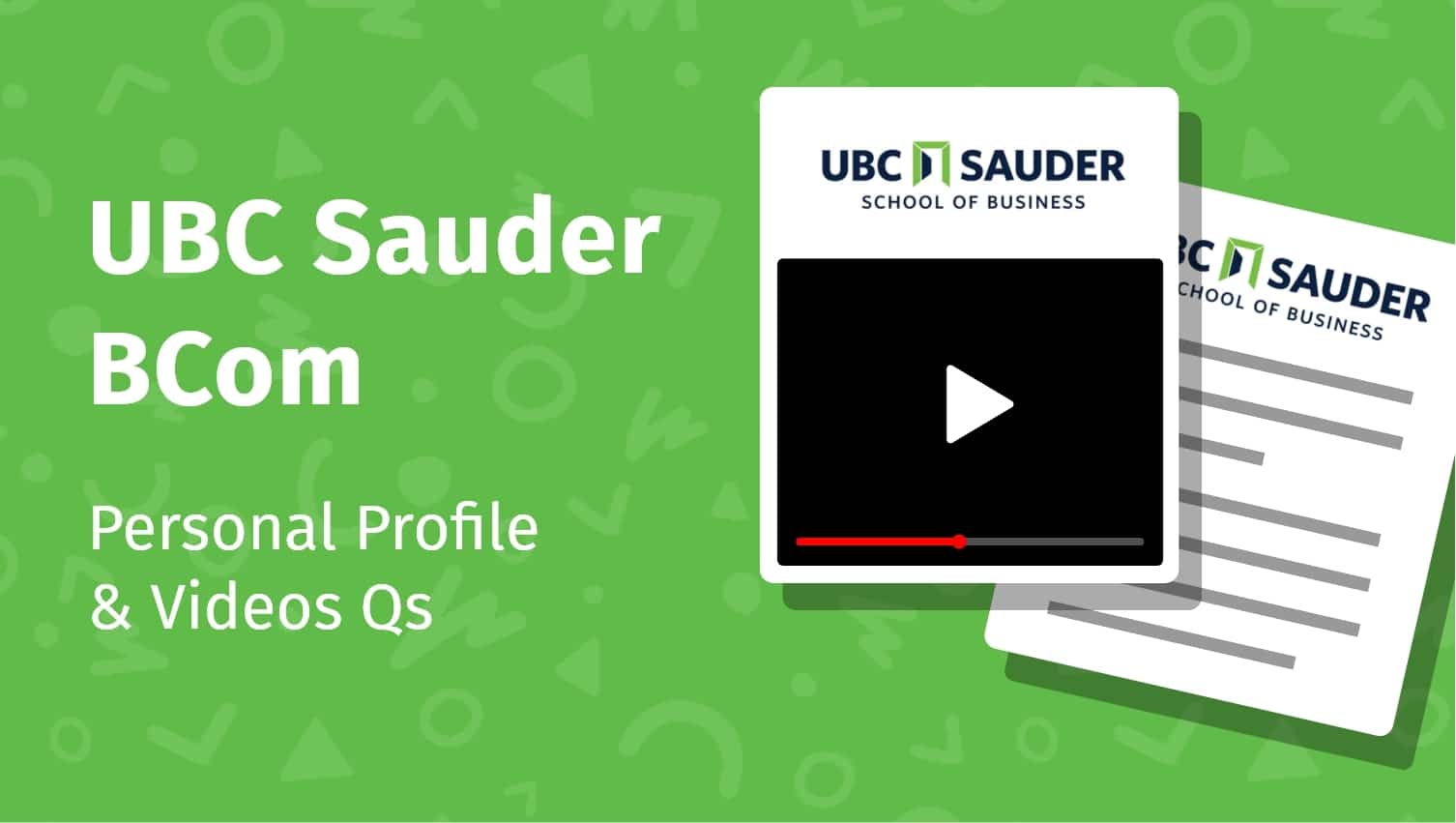
Application Prep
UBC Sauder Application: Personal Profile Examples & Interview Questions 2024-2025
If you are looking for guidance on the UBC Sauder Commerce (BCom) application, including Personal Profile examples and video interview… Read more
3. SUBSTANCE:
The evaluators want to see that EVERY example, detail, and learning outcome you write about in your answers has a purpose and is meaningful.
They want to see that you’ve really thought about your answers and taken the time to prepare them.
Uniqueness is a HUGE factor here — you don’t want your answers to be basic and the same as everyone else’s. They need to dig beyond the surface and give relevant and interesting insights that other students might not have thought of.
The evaluators also want to see that you’ve built self-awareness and have asked yourself big questions like who you are, what you value, where you want to go, and how you’ll apply the lessons you’ve learned to get there.
If you have filled out our Student Identity Blueprint then this pulling out substance and deep personal insight in your essays will be a lot easier (if you haven’t filled out your Blueprint yet, click here to get started or connect with a coach).
4. VOICE:
The evaluators want to see that you can communicate your ideas in an authentic and memorable way, using storytelling, emotional connection, and character development.
They want to see your personality and voice jump off the page — NOT the same generic essay over and over.
This might seem obvious, but a lot of students don’t know how to articulate their ideas in a genuine way that showcases who they are and explains what makes them different.
Once your Profile has been evaluated according to these criteria, it is compared with other students’ Personal Profiles. Then this score is applied to your overall admission average as well as other admission criteria (e.g. video interview), if applicable.
How to Use this UBC Personal Profile App Prep Guide
In this guide, we will provide breakdowns, templates, and examples for all 6 Personal Profile Questions.
IMPORTANT: The program you’re applying to might not ask you to answer all 6 questions (or some of the questions might be slightly different) or it might have some slight variations on the questions listed below. Make sure you read the ENTIRE application to make sure you aren’t missing anything for your program. For program-specific guidance, connect with a coach any time for support.
As mentioned above, all our templates use our Narrative Communication & Deductive Communication Approaches, so you can see what an effective structure looks like for the answers. We will use both approaches throughout this guide. Choose whichever approach you’re most comfortable with (or connect with a coach for support).
We will use UBC Personal Profile templates and examples from the UBC Sauder BCom Personal Profile to show you what essays using the Narrative Approach look like. We have adapted these essays into the Deductive Approach structure so that you can see examples for this communication style as well.
Ace your UBC
Personal Profile.
get a youth coach™
Khanh
UBC Alumni
& Youth Coach™
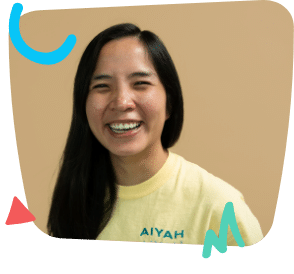
2024/2025 UBC Personal Profile Questions & Examples
Here are the UBC Personal Profile questions, as well as answer examples.
REMEMBER: The program(s) you’re applying to might include some or all of these questions (or some questions with slight variations). Make sure you read the entire application carefully to make sure you don’t miss anything! You can also connect with us for program-specific guidance.
UBC Personal Profile Answer Examples – Question 1
“Tell us about who you are. How would your family, friends, and/or members of your community describe you? If possible, please include something about yourself that you are most proud of and why. (Maximum 500 words)”
UBC Personal Profile Question 1 – Breakdown
This question is an invitation to showcase your personality, character, and values through the eyes of others. It’s an opportunity to give insight into how you are perceived by those close to you and reflect on what makes you unique.
This prompt is about painting a comprehensive picture of who you are beyond academics or extracurriculars. Think about how your family and friends would describe your qualities, personality traits, and strengths. Consider feedback you’ve received from peers, mentors, or community members. This question is also a chance to highlight what you take pride in and why it’s significant to you.
COACH’S TIP: To make your answer stand out, include a mix of descriptions and specific examples that illustrate these traits in action. For instance, if your friends describe you as empathetic, tell a story that demonstrates a time when you showcased empathy. Similarly, if your community knows you as someone who leads by example, share an instance that reflects this.
The “proud of” component is where you can inject depth and personal reflection. Choose an accomplishment or aspect of yourself that has meaning and connects to your values or future aspirations. Explain why this makes you proud and what it reveals about your character or motivations.
A Note on Voice and Authenticity: Write in a way that reflects your natural voice and personality. This isn’t just about listing qualities; it’s about telling a story that helps the reader feel connected to you. Let your genuine self come through, making the response relatable and memorable.
UBC Personal Profile Question 1 – Template
Get started on your template here (Click File > Make a Copy within the doc).
REMEMBER: There is a 500-word limit for this answer.
We suggest following our Narrative Communication Approach.
UBC Personal Profile Question 1 – Example
Here’s an example using the Narrative Communication Approach.
REMEMBER: This is an EXAMPLE ONLY and is NOT meant for you to copy. Why? First and foremost, this is plagiarism and is a serious offence. Plagiarizing these essays will result in immediate disqualification from the admissions process. This can be easily detected using technology and application reviewers are usually trained and/or able to spot when an application isn’t original and does not align with an applicant’s background, personality, values, etc.
Hook
The question “why” is a two-edged sword. It’s led to the most incredible breakthroughs and discoveries…but also left many parents thinking twice about their choice to have children.
The things I’m most proud of are my insatiable curiosity and my ability to bring new ideas to life.
Context
This curiosity shaped me from a young age. I’ve always loved exploring ideas, solving problems, and asking questions. As a child, I wasn’t satisfied with simply knowing how something worked—I wanted to understand why it worked that way and how it could be better.
Last year, I noticed something at my school: while our academic achievements and sports victories were regularly celebrated, the creative talents of students often went unnoticed. Students who excelled in art, music, and design didn’t have the same opportunities to showcase their work. That felt wrong to me. Creativity is just as valuable as academic or athletic ability, and I wanted to do something about it.
That’s when my curiosity asked, “Why don’t we celebrate creativity the way we do other achievements?” And then, “What can I do to change that?”
Catalyst
I decided to organize a “Creativity Fair,” an event where students could showcase their artwork, performances, and handmade creations—and even sell their work if they wanted.
Of course, coming up with the idea was the easy part. Making it happen was a different challenge entirely. When I pitched the idea to my principal, she was supportive but cautious. “How will you fund this? How will you get people involved?” she asked. Those questions could have discouraged me, but they only fueled my curiosity further.
I started by forming a team of like-minded classmates. Together, we brainstormed ways to raise money. We hosted bake sales, sold customized school-themed merchandise, and even organized a karaoke night to fund the event. At the same time, I focused on recruiting participants.
I spent hours reaching out to students I knew had creative talents but were hesitant to share them publicly. One of them was a shy ninth grader who loved sculpting but never displayed her work outside of class. I assured her that the fair would be a supportive environment where her talent could shine.
Outcome
The Creativity Fair was more successful than I could have imagined. On the day of the event, the school gym transformed into a vibrant gallery filled with artwork, inventions, and live performances. Over 50 students participated, and hundreds of people attended, including parents, local business owners, and even a city counsellor!
One highlight of the event was seeing one of the ninth graders I had encouraged display her sculptures. She sold several pieces that day and beamed with pride as people complimented her work. She later told me that the fair had given her the confidence to keep creating and even consider starting a small business.
And she wasn’t the only one. I watched as students who had previously felt unseen gained recognition for their talents and had their work celebrated. A group of musicians performed to cheers from over 100 people, while a grade 12 who created intricate jewelry had her pieces sell out completely within 45 minutes. These moments reinforced the importance of my curiosity and my conviction in bringing ideas to life.
Reflection
The Creativity Fair taught me that curiosity isn’t just a personal trait—it’s a tool for creating change. By asking “why” and “how,” I learned how to turn a simple idea into something that positively impacted my community. It also taught me the value of persistence, collaboration, and creative problem-solving in bringing a vision to life.
Although my mom would tell you that the frequency with which I ask ‘why’ can test her patience, I’ve learned to channel this curiosity into productive parts of my life rather than letting is cause friction or conflict.
This experience has shaped how I approach challenges, how ideas can be brought to life, and how I identify opportunities. I now understand that every question I ask has the potential to lead to something bigger—and that with determination and teamwork, I can help create meaningful change in my community. These are qualities that I hope to bring to the UBC community.
You Might Also Like
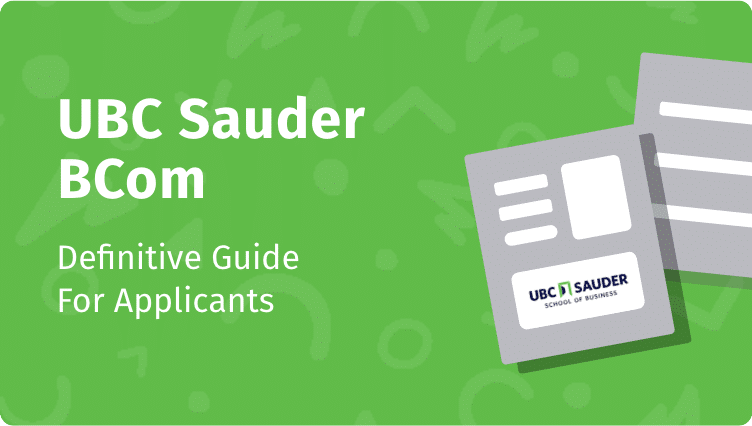
Program Guide
UBC Sauder School of Business BCom: A Definitive Guide for Applicants (2024)
This guide is for you if you’re thinking about applying to the Bachelor of Commerce (BCom) program at the UBC… Read more
UBC Personal Profile Answer Examples – Question 2
“What is important to you? And why? (Maximum 500 words)”
UBC Personal Profile Question 2 – Breakdown
This question is your chance to reveal what matters most to you and to provide the admissions team with a deeper understanding of who you are as a person. It’s not just about stating what you value but explaining why it holds such significance in your life.
This question prompts you to share an experience or realization that highlights your core beliefs and what drives you. Think beyond a simple value and choose something that tells a story about your motivations, choices, or the principles that shape your actions. Maybe your commitment to helping others stems from a formative experience in your community, or your drive for excellence was inspired by a challenge that taught you resilience.
Go beyond surface-level answers and aim for a response that provides insight into your character. The best responses will be authentic and reflective, showing what this value means to you and how it influences your life now and in the future.
COACH’S TIP: Create a vivid and specific picture by incorporating storytelling. Let your response showcase not just what you value, but the journey that led to that realization. Share who you were before this value became central to you, what sparked its importance, and how it has guided you since. Make sure your answer is memorable by showing how this value shapes your decisions and reflects your true self.
Choose examples that demonstrate a clear connection to the value and provide a learning outcome that shows growth or insight. The admissions team wants to see that you understand why this value is important and how it has impacted your view of the world. This reflection adds substance and depth, making your response stand out.
Reviewers will look for thoughtful, well-developed responses that communicate your personal growth and why this value matters. By clearly articulating the significance of this value and connecting it to your life experiences, you’ll craft a compelling essay that leaves a lasting impression.
Not sure how to effectively convey your journey and learning? Our Narrative Communication Guide can help refine your storytelling, and connecting with a coach can offer tailored feedback to elevate your response.
UBC Personal Profile Question 2 – Template
Get started on your template here (Click File > Make a Copy within the doc).
REMEMBER: There is a 500-word limit for this answer.
We suggest following our Narrative Communication Approach.
UBC Personal Profile Question 2 – Example
Here’s an example using the Narrative Communication Approach.
REMEMBER: This is an EXAMPLE ONLY and is NOT meant for you to copy. Why? First and foremost, this is plagiarism and is a serious offence. Plagiarizing these essays will result in immediate disqualification from the admissions process. This can be easily detected using technology and application reviewers are usually trained and/or able to spot when an application isn’t original and does not align with an applicant’s background, personality, values, etc.
Hook
Community smells like cinnamon rolls. At least, it did for me on a freezing winter morning when my neighbour Sean, carrying a tray of fresh-baked pastries, knocked on our door after the storm. It wasn’t just food—it was a reminder that even in the toughest times, people show up for one another.
Context
I’ve always believed in the power of community, but two years ago, during a severe winter storm, I saw it in action. The storm left many families in my town without power, heat, or access to supplies. Roads were blocked, isolating neighbourhoods, and the cold crept in fast.
At first, the situation felt overwhelming. Everyone seemed to be struggling alone—until Sean showed up with those cinnamon rolls. That simple gesture made me realise surviving this storm wasn’t about waiting for outside help. It was about coming together.
Catalyst
Inspired by that act of kindness, I decided to do more. My family and I turned our garage into a supply hub, collecting donations like blankets, food, and warm clothing. I spread the word through classmates, neighbours, and local businesses.
What started as a donation centre quickly grew into something bigger. Neighbours began offering more than just items. One volunteered their snowplow to clear driveways; another proposed meal deliveries for families without power. People started working together, offering help in ways I hadn’t anticipated.
I took charge of organising these efforts, creating a group chat to match volunteers with those in need. Every new contribution reminded me that communities grow stronger when people step up for each other.
Outcome
Within a week, our garage became a lifeline for over 100 families. But the real impact wasn’t just in the supplies—it was in the connections we formed.
I’ll never forget when another neighbour, Denise, who’d come to pick up some meals to drop off, paused and said, “I didn’t know we had this kind of community.” Her words stuck with me. We weren’t just sharing resources—we were rebuilding trust and hope in each other.
Even after the storm passed, these bonds remained. Neighbours who barely knew each other started offering help with projects, sharing tools, and building friendships. Hockey and basketball were played in the street more often, and there was more sidewalk chalk on the street than you’d ever seen! The crisis had created a stronger, more connected community.
Reflection
Community is important to me because it’s about more than living near one another—it’s about showing up. The storm taught me that even small gestures, like a tray of cinnamon rolls, can inspire collective action and change.
I now see every community as full of potential. When people come together, even the toughest challenges can be overcome. As a student at UBC, I hope to carry this lesson with me—whether it’s volunteering, leading initiatives, or building a community with peers in specific classes.
For me, community doesn’t just smell like cinnamon rolls—it smells like hope, resilience, and potential.
Need some help choosing what to focus on for this essay? Connect with a coach for support.
UBC Personal Profile Answer Examples – Question 3
Describe up to five activities that you have pursued or accomplishments achieved in one or more of the following areas. Please outline the nature of your responsibilities within these activities:
- Club
- Creative or performing arts
- Family/community responsibilities
- Work/employment
- Athletics
- Volunteer
- Service to others
- Other(s)
UBC Personal Profile Question 3 – Breakdown
UBC wants to see a broad range of activities in your Personal Profile, both inside and outside of school.
Choose extracurricular activities, like volunteer work or being a President of your school’s debate club, hobbies, like learning a new language, interests, like competitive swimming at your local community center, and/or even general activities you enjoy doing with your family, friends, or members of your community, like playing tennis.
COACH’S TIP: As mentioned above, the evaluators DON’T want you to simply list a bunch of activities you have done. Instead, they want you to talk about activities and experiences that have created learning outcomes that have profoundly shaped who you are as a person, while communicating these lessons in a unique, authentic, and memorable way (this will be especially important for the next question, which we will discuss more below).
Choose up to 5 activities that will show the depth and breadth of your experiences. We call this the T Model (learn more about it here).
Here, you have 1-2 big activities that you’ve put a lot of time and effort into (this is the depth, or the vertical part of the ‘T’). For example, this could be a non-profit you started in your community, a fundraising event you organized to help address homelessness in your community, or giving a TEDx talk on an issue you are passionate about. These are BIG accomplishments that you’re super proud of. These should be the first ones in your Personal Profile, so you can wow the committee from the beginning. 🙂
Next, you’ll have 2-3 activities that take less time and effort, but are still super important for helping shape who you are (this is the breadth, or the horizontal part of the ‘T’). For example, these could be an online course you took that ignited your interest in finance management or a summer internship you did that helped you develop your communication and leadership skills.
Structuring your activities in this way will show the evaluators that you have well-rounded experience in many areas.
COACH’S TIP: UBC receives thousands of applications per year, so creating a unique Personal Profile can be tough. We recommend choosing activities that demonstrate your initiative, teamwork, commitment, and achievement. If you are having trouble, connect with a coach and they will help you out.
We know that identifying (and participating in) activities like this can be difficult, especially if you don’t know where to start. But don’t worry, we’ve got your back. Our unique approach will help you and your coach identify and execute audacious and authentic goals (we call these AYA goals) that are perfectly aligned with your interests and passions, so you can accomplish what you want (and have amazing experiences to talk about on your application). Connect with a coach to get started and check out our Goal-Setting Guide now.
UBC Personal Profile Question 3 – Template
Get started on your template here (Click File > Make a Copy within the doc).
For this question, you will be asked for the following information:
- Activity Type: State what this activity is, using the list above. If your activity isn’t mentioned in that list, write a 1-2 word description.
- Start Date: State when you began this activity (month/day/year)
- End Date (optional): State when you completed this activity (month/day/year). If you are still doing it, leave this blank.
- Ongoing (optional): If this is an ongoing activity, check this box.
- Frequency: Select from the dropdown menu how often you participate in this activity (for example ‘Regular Weekly Activity (5-10 hours per week).
- Short Description (max 300 characters): Briefly describe your role in this activity and what it was for (e.g. President of your school’s economics club). Then, describe what you did, as well as what quantifiable outcomes (i.e. money earned, hours dedicated, etc.) and what you learned as a result of taking part in this activity (if you have space).
COACH’S TIP: When you’re applying, you will have to add each activity individually (see the image below for what it looks like). Our template will ensure that you have all the correct information beforehand so you can have everything prepared and proofread.
UBC Personal Profile Question 3 – Example
Here’s an example of a list of activities for this question:
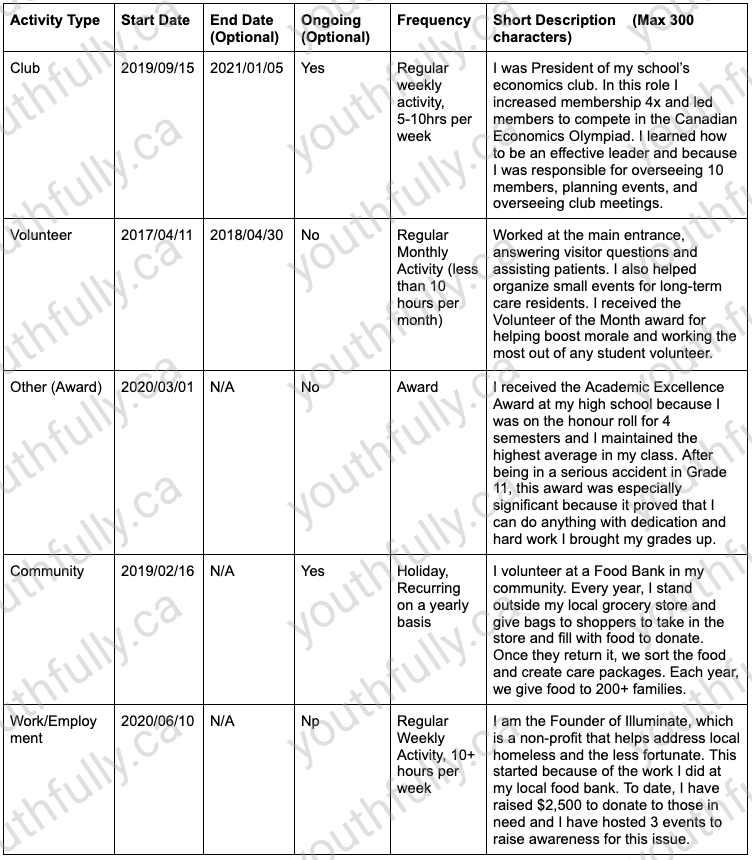
UBC Personal Profile Answer Examples – Question 4
Tell us more about one or two activities listed above that are most important to you. Please explain the role you played and what you learned in the process. You will be asked for a reference who can speak to your response. (Maximum 500 words)
UBC Personal Profile Question 4 – Breakdown
This question is an opportunity to showcase an activity (or two) that has had a significant impact on you. The focus is on illustrating how your role contributed to personal growth and what lessons or skills you gained through the experience.
Choose activities where your involvement was meaningful and where you can clearly describe your contributions and growth. The admissions team wants to see more than just a summary; they want to understand the depth of your commitment and how these experiences have shaped you.
COACH’S TIP: Select examples that are unique and highlight your personal journey. Dive into moments that tested you or where you made a notable impact. Your response should paint a clear picture of your dedication and outcomes, using specific, vivid examples to illustrate the learning and skills gained.
Key Points to Emphasize:
- Your Role: Clearly explain your responsibilities and what you did.
- Challenges and Growth: Showcase moments that were challenging and how you navigated them.
- Learning and Impact: Highlight key insights or skills you developed and their significance.
- Authenticity: Ensure your response feels personal and sincere. This is your chance to show the admissions team who you are beyond grades and accolades.
The evaluators are looking for thoughtful, specific answers that demonstrate engagement, leadership, and self-reflection. Make sure to include enough detail to show depth without losing clarity. A strong, reflective response can set you apart and provide a meaningful glimpse into your character.
UBC Personal Profile Question 4 – Template
Get started on your template here (click File > Make a copy and save it to your computer).
REMEMBER: There is a maximum of 500 words.
We suggest following our Narrative Communication Approach.
UBC Personal Profile Question 4 – Example
Hook
The hardest decisions don’t come with a flashing sign that says, “Right this way.” Instead, they sneak up on you in moments you least expect—like staring at a whiteboard marker, deciding between speaking up or staying silent. For me, that moment happened in a classroom, and it completely changed how I see leadership.
Context
It was my first week as a peer tutor in my school’s math support program. I’d signed up because I loved math and wanted to help others feel confident tackling difficult problems. But that day, the classroom wasn’t buzzing with collaboration or focus. One student, Jonathan, had taken over the session, loudly criticizing others for not understanding the material as quickly as he did. The other students were quiet, their eyes downcast, clearly uncomfortable.
I hesitated, marker in hand, unsure what to do. Confronting Jonathan felt risky. What if he turned his frustration on me? At the same time, staying silent felt like an even bigger mistake. The group depended on this space to feel safe and supported, and I had a responsibility to make sure that happened.
Catalyst
I decided to act. I walked up to Jonathan and calmly said, “Hey, I understand you’re frustrated, but let’s break this down to figure it out. If they’re not getting it this way, let’s try something else that might work better for them.” His face showed surprise, but he nodded and sat down.
Turning to the group, I shifted the focus by inviting someone else to walk through the solution on the board. I intentionally chose a quieter student, offering gentle encouragement as she explained her thinking. The room began to relax, and others started contributing too. Slowly, the dynamic changed—students who had stayed silent earlier began asking questions and engaging with the problems.
Outcome
By the end of the session, the group felt like a different place. Jonathan even apologized quietly as he packed up his things, and I saw him helping another student during the next session.
That day taught me that leadership isn’t always about having authority—it’s about stepping up when the moment calls for it. It’s about creating an environment where everyone feels valued and supported. My decision to address Jonathan wasn’t easy, but it allowed the group to refocus and ensured no one felt left behind.
Reflection
This experience reshaped my understanding of leadership. I realized it’s not just about managing situations—it’s about fostering collaboration and ensuring everyone’s voice is heard. It also showed me the importance of courage, even when the stakes seem small. That single moment of speaking up had a ripple effect on the group, and it strengthened my confidence in my ability to lead.
I’ve carried this lesson into other areas of my life, whether it’s working on group projects, volunteering, or coaching sports teams. Leadership is about choosing the harder path when it’s the right thing to do and ensuring the people around you feel empowered.
For me, the whiteboard marker wasn’t just a tool and math tutoring wasn’t just a task that day—they symbolized a choice, and I’m proud of the decision I made. It reminded me that leadership doesn’t come with instructions. Sometimes, it’s about simply stepping up when the moment feels right.
UBC Personal Profile Answer Examples – Question 5
Additional Information (Optional): You may wish to use the space below to provide UBC with more information on your academic history to date and/or your future academic plans. For example: How did you choose your courses in secondary school? Are there life circumstances that have affected your academic decisions to date? What have you done to prepare yourself specifically for your intended area of study at UBC? (Maximum 500 words)
UBC Personal Profile Question 5 – Breakdown
So far in your Personal Profile, you’ve given the admissions committee some insight into your experiences and achievements inside and outside of the classroom with volunteer opportunities, extracurriculars, and various other activities.
All of these questions show how you undertake responsibilities, deal with setbacks when they arise, and have grown as a person along the way. Think of this as the development of your interests and passions through the activities you are involved in.
Question 7, on the other hand, focuses less on extracurriculars and other activities, and looks inside the classroom. Here, the reviewers want to know how your academic journey has developed your interest in business and led to you applying to UBC Sauder.
This question is very open-ended so that you can focus on any area that has impacted your academic choices and performance. This is a great place for you to provide more context about any irregularities in your transcripts, like a course you didn’t do the best in or explaining a gap year you took.
If you aren’t sure what to write here (if anything at all), have a look at your Student Identity Blueprint™ to help you identify why your interest in business began, your achievements thus far, and the skills/values that helped shape this interest (and who you are more generally). If you haven’t already completed your Blueprint, connect with a coach to get started on one.
The most important thing to focus on for this question is how your courses in high school helped you develop your interest in business, which you are then continuing to explore at UBC Sauder.
You can discuss a gradual development over time or a specific event that changed academic choices/plans.
Focus on business courses as much as you can here, like Business Studies, Accounting, or Entrepreneurship. Think about such questions as:
- What made you want to take this course?
- What challenges did you face when you did?
- How did this evolve your interest in business more generally?
- What skills, like leadership, communication, team work, and problem solving, did you develop along the way, and how?
- How will these skills and experiences you developed help you at Sauder, and how?
COACH’S TIP: Use specific details and talk about the emotions you experienced as much as you can. This will help create an emotional connection with the reader and transport them into exactly what you felt during the situation/experience you are talking about.
If you are unsure how to approach this question, connect with a coach to find an authentic angle that will connect with the reviewers while communicating your unique journey.
UBC Personal Profile Question 5 – Template
Get started on your template here (click File > Make a copy and save it to your computer).
REMEMBER: There is a maximum of 500 words.
We suggest following our Narrative Communication Approach.
UBC Personal Profile Question 5 – Example
Hook
The best deal I ever made started with a single question: “What’s it worth to you?” I was 12, sitting across from my parents at the dinner table, pitching my case for a weekly allowance in exchange for chores. The outcome wasn’t just money—it was my first taste of the power of negotiation, and I’ve been hooked ever since.
Context
When I entered secondary school, my curiosity about negotiation and business only grew. I wanted to understand not just how to make deals, but how businesses create value, solve problems, and adapt to challenges. This curiosity guided my course selections, like economics, accounting, and marketing, and encouraged me to seek opportunities to apply my learning in real-world settings.
One of my earliest ventures was with my school’s entrepreneurship club, where we launched a business selling eco-friendly water bottles. As the team’s marketing lead, I focused on crafting campaigns that emphasized our mission to reduce single-use plastics. Beyond just selling a product, I learned how to connect with an audience and balance financial goals with a commitment to making a positive impact.
Catalyst
In grade 11, I decided to push myself further by participating in a regional business pitch competition. My team was assigned a struggling small business—a family-owned bakery—and tasked with developing a plan to increase their revenue. We spent weeks interviewing the owners, analyzing their financials, and researching market trends.
The experience was intense. My role focused on customer retention strategies, and I proposed loyalty programs and themed events that would attract regular customers. On pitch day, I had to present our ideas to a panel of judges, answering tough questions about scalability and budget constraints. It wasn’t just a test of our strategy—it was a test of my ability to think on my feet under pressure.
Outcome
Although we didn’t win the competition, the feedback we received was invaluable. The judges praised our creativity and thorough research, and the bakery owners even implemented some of our suggestions, like hosting seasonal pop-up events. Seeing our ideas make a real-world impact was incredibly rewarding and reaffirmed my passion for business.
The experience also inspired me to deepen my skills. Over the summer, I completed an online course in business analytics and took on an internship with a local start-up, where I helped design customer acquisition strategies. These opportunities taught me to look at business from multiple perspectives—strategic, financial, and human—and solidified my commitment to pursuing a business degree.
Reflection
What started as a childhood fascination with negotiation has grown into a passion for problem-solving and creating value. Through my experiences, I’ve learned that business isn’t just about profit margins—it’s about collaboration, creativity, and driving positive change.
At UBC, I’m excited to dive deeper into these principles through the Sauder School of Business, exploring areas like entrepreneurship, marketing, and sustainability. My journey so far has taught me that every challenge is an opportunity to learn, grow, and create impact—and I can’t wait to see where this passion takes me next.
Need some help tackling tough UBC Personal Profile questions like this one? Remember — you aren’t alone! Connect with a coach to figure out what to share in this section.
UBC Personal Profile Answer Examples – Question 6
Please submit the names of two referees who know you well and can comment on your preparedness for study at UBC. Examples of referees include an employer, a community member, a coach, a teacher/instructor, or anyone who knows you well. One of the referees you select MUST be able to speak to one of the activities / experiences described in one of your long-answer responses above. For applicants who are currently attending a high school, one of your referees MUST be a school official (e.g. grade 12 or senior year counsellor, teacher, or IB Coordinator). Neither referee should be a friend, family member, or paid agent.
UBC Personal Profile Question 6 – Breakdown
The purpose of this question is so that UBC can verify the activities, experiences, and learning outcomes you discussed in the previous questions.
Before listing the names and contact information for your references, make sure that you ask your references for permission first, so that if they get a call or email from UBC then they’re not surprised.
UBC Personal Profile Question 8 – Template
You will need the following information:
- First Name
- Last Name
- Relationship
- Email Address
- Phone Number
UBC Personal Profile Question 8 – Example
Here an example of the information for this section:
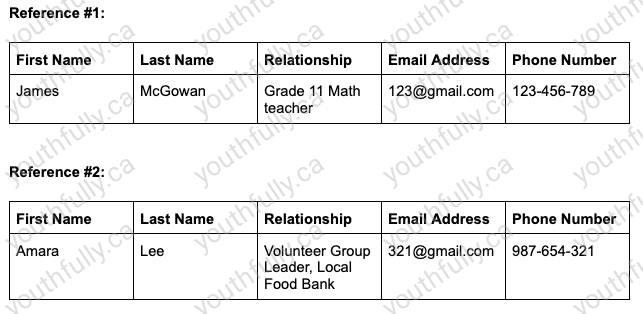
Our Youth Coaches have helped hundreds of students create unique and authentic essay responses that showcase their skills, experiences, and strengths. Connect with a coach for all the support you need!
Find the mentor you’ve been looking for.
get a youth coach™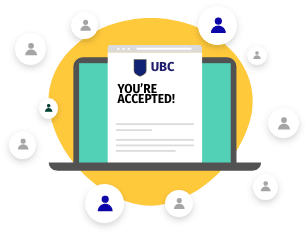
You Might Also Like
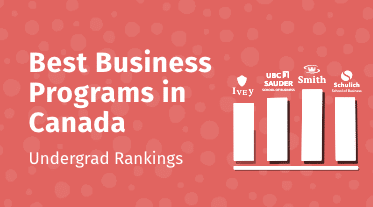
Rankings & Lists
Best Business Schools in Canada 2024 (Undergraduate Programs)
You’re investing a TON of time, money, and energy towards your future. You’ve gotten the grades, done a bunch of… Read more
You’ve Got a Dedicated Coach in Your Corner
For over a decade, we have worked with thousands of students to help them achieve more than they ever thought possible.
Our coaches have a strong success rate supporting students as they apply to the University of British Columbia, among other top universities.
Our 1-on-1 Youth Coaching fills that gap that most high schools miss. We can help you build self-awareness through probing questions and assessments, set bigger goals to elevate your extracurriculars and future career plans, and improve skills that matter on supplementary applications, such as interviewing, written communication, critical thinking, and creativity.
We use a coaching methodology, called ‘full student’ development, that’s been proven to increase your chances of admission to top-tier universities and obtaining competitive jobs/internships.
So, what are you waiting for? Fulfill your post-secondary potential with the mentorship and coaching you’ve always wanted!
IMPORTANT: Want to share information and/or images from this resource on your own website, blog, article, etc.? Please ensure you reference content of any kind published by Youthfully Inc., in whole or in part, using the following statement: (1) Our Organization (Youthfully Inc.); (2) The title of our content/resource; and (3) the URL to our webpage where the content was originally posted. For example: “Sourced from: Youthfully Inc., “UBC Personal Profile: Examples, Question Samples, & Prep Tips 2023/2024”,’ https://youthfully.com/ubc-personal-profile-questions-examples-and-tips.” Not doing so is an infringement of copyright and is illegal. We spend significant time developing resources for students, so please take a few seconds to ensure they are referenced properly.
Disclaimer: While the information in this blog is considered to be true and correct at the date of publication, and although our team makes every attempt to ensure that the information is accurate and vetted by university staff, Youthfully is not in any way liable for the accuracy of any information printed and stored or in any way interpreted and used by a user.
Personal Profile Q1 & Q2
Personal Profile Q3 & Q4
Personal Profile Q5 & Q6
Get 1-on-1 Support

